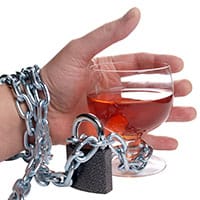Is your feeling about the holidays “Hooray for the holidays!” or “Ugh, the holidays are here again?” While everyone around makes a mad dash to splurge on last-minute shopping or preparations for a fantastic family holiday dinner, are you preparing to put up with various bad behaviors on the part of loved ones? Maybe it isn’t just that Uncle Charlie is a cantankerous old coot or that sweet teenage daughter Sheila, who seems way too laid back, may be harboring a secret. Here are some signs that drugs or alcohol may be responsible:
Slurred Speech
A telltale sign of intoxication, slurred speech can seem to gradually set in, especially if the family has congregated for several hours before eating the holiday meal and one or several of them have made frequent visits to the liquor cabinet or bar and poured overly-generous portions of alcohol. No matter what the age, when too much alcohol is consumed, the body reacts with bad behavior often following signs of the obvious, like slurred speech.
Nodding Off
Glazed eyes, drooping eyelids, head jerking to stay awake — if you spot this, it’s likely an indication that either drugs or alcohol or a combination is the root cause. Alcohol and certain drugs are depressants, causing the body’s central nervous system to slow down. Too much and it reaches a critical level. That’s when a loved one can pass out, experience a blackout or worse.
Arguments and Outbursts of Anger
Suppose your normally easy-going and sensible spouse (who may have been entertaining other family members while you slaved in the kitchen putting the finishing touches on the holiday meal) becomes querulous, picking an argument over nothing, shouting at the TV or getting loud and obnoxious. Is it the release of accumulated stress, or the consequence of tipping back too many beers or cocktails? Anger and argumentativeness are signs that alcohol or drugs may be responsible for this Jekyll-and-Hyde behavior.
Doing Shots
Having a drink to be sociable is one thing, but slamming shots in succession is binge drinking. There’s no possible way this scenario has a happy ending. The loved one engaging in binge drinking will act out in one way or another, leaving you and other family members desperately trying to tiptoe around or ignore them, or just end up leaving the gathering. There may not be much you can do about it now, but when the person is sober, it’s time for a talk about getting help to deal with what may be a drinking problem.
Sweet Smell of Grass
No, it’s not a fresh-cut lawn that you smell, but the unmistakable odor of marijuana. Looking around the room at gathered family members, who appears to be glassy-eyed, laughing a bit more than normal, munching on chips or sweets like it’s their last meal? Be prepared for some lag time in conversation, exaggerated or slow movements, maybe even falling asleep at the table. The natural assumption is that it’s a young person who’s been toking, but it could just as easily be an aged parent with chronic pain and a medical marijuana prescription.
Popping Pills with Alcohol
Whether it’s an over-the-counter or prescription medication, when you see a loved one popping pills and chasing it with alcohol, it’s not a good sign. This can be incredibly dangerous and lead to some very bad behavior as the effects of the drugs and alcohol mix.
Anxiety, Depression and Other Emotional Distress
Depending on the substance used, a loved one who begins acting out of character can exhibit signs of anxiety, depression, paranoia or other emotional distress. If hand-wringing and endless questions seeking reassurance make you wonder what’s going on and the behavior continues after you think you’ve answered sufficiently, it could be that alcohol or drugs precipitated this unfortunate behavioral consequence.
Vomiting
Nothing says overconsumption like having to expel substances by vomiting. A loved one who’s been exhibiting bad behavior and leaves the room (or not) to vomit has likely been partaking in alcohol or drugs. Alcohol, for example, irritates the stomach and intestinal lining, which in itself is enough to cause vomiting.
Decreased Inhibitions
Since alcohol is a depressant, it does more than take the edge off. For many people, drinking alcohol (and taking certain drugs) helps them overcome their inhibitions, often leading to questionable and risky behavior. Crude or suggestive remarks, dancing and improper hugging, touching and kissing by a loved one may be the result of too much alcohol.
Withdrawal from Other Family Members
Hiding in the corner unwilling to talk and interact with other family members could be a sign your loved one has been drinking or using drugs. This type of retreat is a general symptom of chronic substance use. The holidays can be a blessing or a bust, depending on how you choose to deal with loved ones who may be abusing alcohol or drugs. The best solution is to have a plan that includes serving non-alcoholic beverages, shortening the wait time for the big meal, and figuring out ways to gently remove an intoxicated loved one from the presence of others. By Suzanne Kane




